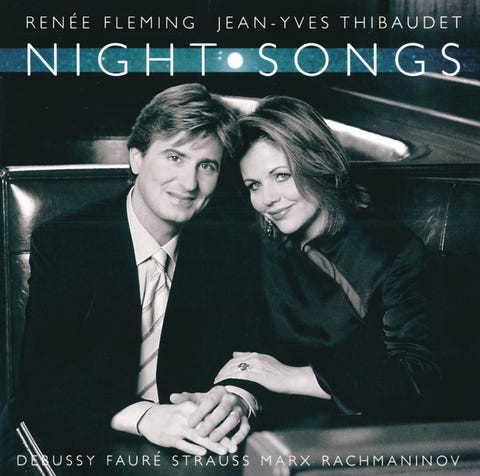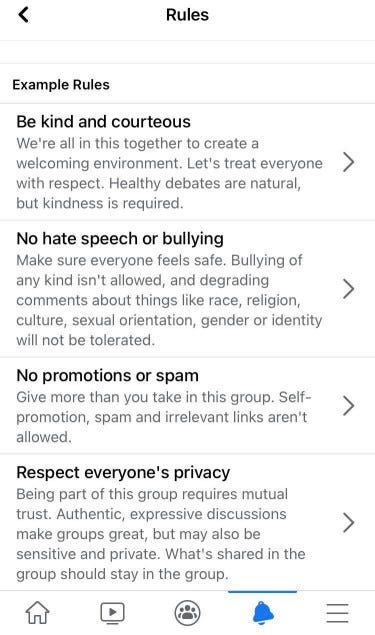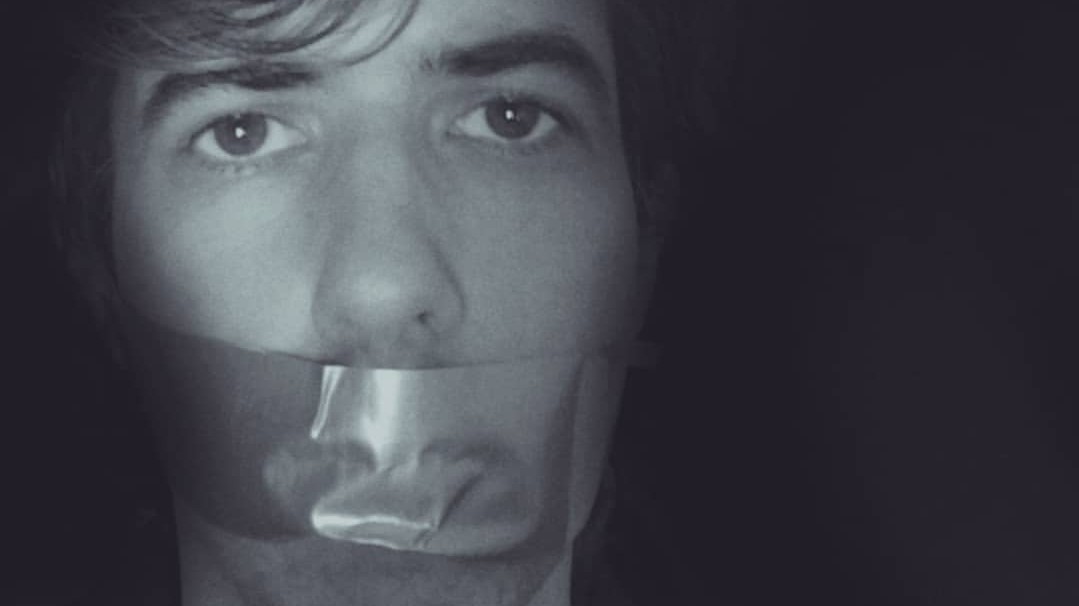I wrote a controversial post in a collaborative piano Facebook group the other day.
(For those who don’t know, “collaborative pianist” is a made-up term intended to replace the word “accompanist.” They invented the word because “accompanist” has connotations of subservience. I agree that “accompanist” sucks. But, “collaborative pianist” is a bit too SJW-approved for my tastes. I have a master’s degree in the field, so shut it.)
Anyway, my post was in response to another post about album covers. Someone had posted an image of a singer and pianist together on a cover, and I noticed myself having a reaction to it.

I thought about what was causing my reaction, and wrote my post:
“Pianists and singers receiving equal exposure on album cover photos.
This feels artificial to me. The singer is the human being here. The pianist is equally important, but not equally human. They’re like the director of a film, not the star.
Added: I guess we should put the recording engineer and the piano manufacturer on the cover, as well. Because I hear them more than I hear the pianist. And the piano tuner.”
Why did this post provoke so much anger among collaborative pianists?
As a teenager, I loved listening to a CD of tenor Fritz Wunderlich singing Schubert’s Die schöne Müllerin with Hubert Giesen on the piano. If it were a record, I would have worn it out. I knew practically every word, even though I spoke no German.

I don’t see a picture of Giesen (the pianist) anywhere on the cover.
What I see is:
- The singer.
- The music.
- The scenery.
(Probably a lot like how Schubert imagined it, I’m guessing.)
I can’t find any pictures online, but I’m fairly certain the insert booklet did contain pictures of Giesen and Wunderlich rehearsing together.
In Giesen’s autobiography, he writes (emphasis mine):
Hermi was Hermann Prey, Wunderlich’s friend. “Well?”, I asked.
“I told him: I do anything I can, I work hard with my accompanists, but it comes to nothing. And Hermi tells me: go to see Hubsie Giesen, go to Stuttgart. But be careful: Do not contradict him, but do everything he tells you to do…”
We went to the College of Music and began to work on Schumann’s “Dichterliebe”. After we had come to the end of the first sheet, I stopped playing. He looked at me and asked me:
“What do you think about it?”
“Do you want me to be honest?”
“You have to be honest”, he said. “That’s why I’m here.”
“Right then… I think it’s rather bad.”
“You see! That’s just what I think”, Wunderlich said with a sigh of relief, as if I had paid him compliments.
We kept on practising seriously for some hours. In the end, we had worked through four bars where his articulation, intonation and legato now were as I wanted to hear it. After that, he had to go back to Munich. The very next day, he phoned me and told me he had cancelled an operetta production with the Cologne broadcasting corporation to be able to practise with me. He asked me if I could come to Munich for the following three days. I came, and we continued our work. After these days he said: “Prey was right. It’s no use contradicting you. What could I say then? It would only hold us back.”
When we started working together, I was sixty-five years of age, Wunderlich thirty-tree. Fritz Wunderlich has never been my “pupil”, but he considered himself as one while we were working together — the great tenor who had the opera world at his feet even then.
Clearly, Wunderlich saw Giesen as a teacher, as someone who was more knowledgeable about the music than he was himself. I don’t think Wunderlich is the one the collaborative piano mafia should be going after.
But, that’s beside the point. It seems weird to me to put a picture of the guy whose voice I’m not hearing, just so his feelings aren’t hurt. Especially when his picture is right there in the behind-the-scenes content (where it belongs).
Rational responses to sometimes-less-than-rational comments
This started off as a post about album covers, but then I became fascinated by the anger it was stirring up.
I want to share with you the paraphrased versions of some comments I got, along with my reactions. Hopefully, this will give you some glimpse into the phenomenon.
“Your wording is a bit clumsy.”
My wording is my wording. You’re saying it’s clumsy because it clashes with something inside you.
“It’s about the music. If the repertoire is hard, the pianist should be there next to the singer. If it’s easy, then it’s not necessary.”
I’m not looking at it in terms of the difficulty of the repertoire. I’m looking at it in terms of whether the picture on the box represents what’s in the box, from the audience’s perspective. Like a movie poster shows the actors, not the director.
“Just because you think pianists don’t deserve credit doesn’t mean the audience agrees with you. You have no idea what they think.”
No, I absolutely do know what the audience thinks, because I’m writing as a member of the audience, not as a pianist.
This isn’t about who deserves credit. Nothing to do with that at all. This is about marketing, about whether the picture on the box matches what’s inside the box.
“This is a group for pianists’ rights. How dare you argue against pianists’ rights?”
I’m not making an argument of any kind. I’m expressing an opinion.
Is this a group dedicated to pianists’ rights? That wasn’t my impression. I thought it was about collaborative piano in general.
“The pianist’s job is harder than the singer’s, so they should get more credit.”
I have to think that, as a pianist, you might be slightly biased here.
“The issue is that the audience needs to be educated in that the singer and pianist are equals.”
If you want to make a deliberate effort to educate the audience, I’m all for it.
As an audience member, I cringe when I see photos with a pianist, because as a pianist, I know that it’s an attempt to assert the rights of the pianist, rather than an attempt to improve my experience as an audience member.
“This isn’t about art, but about marketing. We should focus on the music.”
I wouldn’t be so quick to dismiss the effectiveness of marketing. And not just for making money, but as an educational tool. I’ve spent the past couple years learning about marketing, originally to sell my piano course.
I didn’t realize it would be just as difficult as learning to play the piano.
Back in the day when CDs were a thing, that’s how I discovered new music. I went to the store and looked at what CDs were on sale, and bought the ones that had appealing covers (this is how I discovered Martha Argerich, I remember specifically).
The marketing is a part of the artistic experience. It’s the audience’s first point of contact with the work.
(It’s also the thing they share with their friends.)
“It’s not about pianists’ rights. It’s about the fact that the pianist and singer are equal, artistically.”
That’s artificial. It’s only from the pianist’s perspective that both partners are equal. From the audience’s perspective, the singer is more equal than the pianist.
And when you read the comments to my post, you’ll see that very few people are considering it from the audience’s perspective, but rather the perspective of pianist’s rights.
“You’re just trolling us.”
Depends on how you define “trolling.”
Here’s how I’m a troll: part of the reason I posted that is to expose how those people are single-minded fixated on one particular issue (how pianists are routinely disrespected by singers) and are unwilling to discuss any other issues objectively, even when they’re relevant to the field.
I can’t say that outright, because it will bias the results of the experiment (and give them more ammunition to use against me, but here we are).
But, the open-minded observer should learn a lot from my post and the comments on it.
It’s like meditation. What I’m doing is causing them to react violently to perfectly reasonable statements. Even if I’m “deliberately triggering” them, this is a valuable service. I would pay someone to do it to me.
(Also, who’s “us”? Why are you identifying with the group? I can assure you that my post was not aimed at the mob.)
“This is a weird hill to die on.”
Um…I would be uneasy fighting next to someone who’s unwilling to die on the hill, should it come to that.
If you have an opinion, state it loudly and clearly.
“You’re horrible. How dare you say I’m subhuman?”
Go back and read my post. I didn’t say you’re subhuman.
What scares me the most is that when the mob descends on you, they start spinning their own tale about what you said. As new mob members join the fray, they’re indoctrinated in the mob’s tale and read your post in that light.
Then, it becomes easy for them to justify mob violence.
How does one mitigate this danger?
No clue.
“Michael, can’t you just soften your language a bit?”
Pianists have severe PTSD. They act like they were abused as children (which is true, btw). I know this because I’m a pianist, and I’ve worked hard to get through my PTSD.
Still, it makes it hard to talk about anything else.
(You can’t even talk about an album cover.)
I don’t have the energy to manage 20,000 whiny kids. I’m trying to speak to the people who might really want to hear what I’m saying. If I soften my words, they will go unnoticed. I have plenty of experience with that.
On the other hand, because I didn’t bother softening that post, more people have been talking and thinking about it. They wouldn’t have noticed it otherwise. They would have tapped ‘like’ and scrolled past with a zombie-expression on their faces.
I didn’t want “them” to notice anything at all. I wanted “them” to ignore me. I wanted the people who have intellectual and artistic curiosity to notice me. Not the PTSD kids.
And now, for the real abuse
I’ll conclude by listing a few more comments that I’m not particularly interested in reacting to. Hopefully, it will give you a taste of what we’re dealing with here in music-land:
- “you’re experiencing some marketing style stockholm syndrome, and I wish you a speedy recovery because you deserve better.”
- “Excuse me, what the hell??? Am I missing some sarcasm?”
- “Yeesh. I think we’re just being trolled.”
- “I can’t stop laughing.”
- “Seriously that was one of the most asinine musical comments I have ever read.”
- “I didn’t expect the worst thing I saw on the internet today to be in a musician’s group, but here we are.”
- “Only narcissist or sociopaths talk about others in terms of beneath human or subhuman. Or someone with no sense of humor trying to be funny. Oh well, I’ll laugh anyway.”
- “I don’t even say anything cause i am gonna be banned from here, what the hell did i just read”
- “Your remarks are, frankly, idiotic.”
Postlude (full-scale cancellation)
As I was finishing up this article, I happened to notice that I was kicked out of the group. Big surprise there.
So, let’s keep writing…
I posted the following on my personal Facebook account once I noticed the mob attack had begun:
“Michael, aren’t you just being deliberately provocative?”
Interacting with musicians is confusing. Zero intellectual curiosity in that field. They’re itching to be provoked (it’s hypervigilance, a symptom of PTSD). It does keep me up at night, wondering if I am indeed the bad guy they say I am.
Back on the group, someone had discovered that particular post, pasted it into the group, and made this comment:
You’re not edgy and intellectual, Michael. When people disagree with your intentionally confrontational pseudo-intellectualism you just sound like that one teenager who thinks he is, and needs to be, the smartest person in the room but is instead just full of self loathing. It doesn’t keep you up at night, wondering if you are indeed the bad guy we say you are; you’re just bored during covid and wanted people to talk to, even if they were just defending themselves from you and responding to your insane counterproductive arguments. No one thinks you’re a bad guy, some of us just think you’re trying too hard to be an edge lord.
A couple minutes later, I was out of the group.
(Thanks, mob narrative.)
One of the admins, Lynn Zwinck, messaged me and said that my post had been reported, and “unfortunately the post violates group rules 1 and 2.”
She sent me a screenshot of the rules:

I couldn’t find anything in the rules that my post had violated. I mean, they were certainly bullying me, but whatever. I’m used to it at this point. I also don’t recall being treated with respect by very many of them, but again, I’m not the one reporting rules violations (not my style).
Is “collaborative pianist” now a protected class along with race and sexual orientation? I hadn’t leveled any hate speech against collaborative pianists, but that was the only thing I could think of.
(You’d have to be rather pathologically attached to your identity as a collaborative pianist to be offended by disparaging remarks against collaborative pianists as a group, wouldn’t you???)
So, I replied: “I don’t see how my post violated either of those rules. I expressed a personal opinion about CD album covers, nothing about race, religion sexual orientation, etc.”
Lynn: I hope you’re able to find another group that is a better fit.
(OK, let’s be courteous…)
Me: Thank you. I hope this incident helps you clarify the rules and help prospective members understand better what kind of group it is.
Lynn: You’re very welcome. It’s a small world, and I hope all goes well for you!
(I’ve heard the “small world” thing from other musicians, so it caught my attention.)
Lynn (a few minutes later): Ah I noticed you mentioned you don’t see how the post violated either rule. It was the part where you said “The singer is the human being here. The pianist is equally important, but not equally human.” Hope that helps!
Me: You really think I meant that to demean pianists? That’s bizarre. “Not equally human” refers to the fact that the sound of the voice is the sound of a human, and the sound of the piano is the sound of a machine. So, from my perspective as a listener, when I hear a singer with piano, I’m envisioning the singer, not the pianist. I’m not going to defend myself, because I understand how mobs work. But I wanted to tell you that just in case you really don’t see what was meant by my post
(I agonized a bit over that one. I know it will be used against me, but on the off-chance she had some honest curiosity, I wanted to leave the door open.)
Lynn: Hi Michael, I hear what you’re saying. Thanks for sharing!
Me: Hope it’s helpful!
Lynn: 👍
So, there you have it. I hope this gave you some insight into what exactly is going on in the world of professional pianists.
Please don’t keep quiet about this
If you have an opinion, state it. Share this article. Spread the word.
Don’t let the bullies hog the microphone.
That would be the worst possible outcome.

Comments
One response to “About the “Collaborative Pianists’ Community” FB group”
[…] now been kicked out of 7 piano groups! I wrote a blog post about the one that bother me the most: Attack of the Piano Justice Warriors. I’ve been running that as an ad, and someone shared it privately and their share has gotten […]